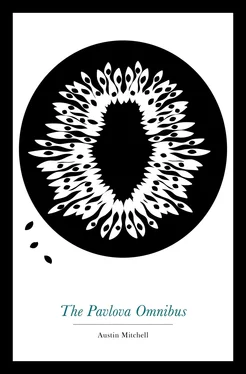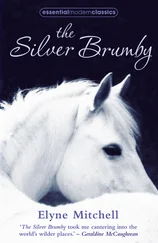Austin Mitchell - The Pavlova Omnibus
Здесь есть возможность читать онлайн «Austin Mitchell - The Pavlova Omnibus» — ознакомительный отрывок электронной книги совершенно бесплатно, а после прочтения отрывка купить полную версию. В некоторых случаях можно слушать аудио, скачать через торрент в формате fb2 и присутствует краткое содержание. Жанр: unrecognised, на английском языке. Описание произведения, (предисловие) а так же отзывы посетителей доступны на портале библиотеки ЛибКат.
- Название:The Pavlova Omnibus
- Автор:
- Жанр:
- Год:неизвестен
- ISBN:нет данных
- Рейтинг книги:5 / 5. Голосов: 1
-
Избранное:Добавить в избранное
- Отзывы:
-
Ваша оценка:
- 100
- 1
- 2
- 3
- 4
- 5
The Pavlova Omnibus: краткое содержание, описание и аннотация
Предлагаем к чтению аннотацию, описание, краткое содержание или предисловие (зависит от того, что написал сам автор книги «The Pavlova Omnibus»). Если вы не нашли необходимую информацию о книге — напишите в комментариях, мы постараемся отыскать её.
The Pavlova Omnibus — читать онлайн ознакомительный отрывок
Ниже представлен текст книги, разбитый по страницам. Система сохранения места последней прочитанной страницы, позволяет с удобством читать онлайн бесплатно книгу «The Pavlova Omnibus», без необходимости каждый раз заново искать на чём Вы остановились. Поставьте закладку, и сможете в любой момент перейти на страницу, на которой закончили чтение.
Интервал:
Закладка:
Moving, in the fashion of any good Labour man as he grows older, from left to right, let me begin with the Marxists. They owe more to Groucho than to Karl. New Zealand’s communists have now split up into fifty-seven different varieties, which is two varieties more than the actual number of communists. In Dunedin, being closest to Russia, there lives a group of Marxists still as dedicated to Comrade Stalin as others in the town are to Bonnie Prince Charlie. There they sit perfectly preserved, like everyone else in that historical deep freeze called Otago, in the attitudes of the 1930s. Further north, in Auckland, Comrade Mao is more fashionable. Indeed the Communist Parties of China and New Zealand have issued at least one joint statement, a boost to the Chinese self-confidence which may have led directly to the Vietnam war.

There’s no need to fear any of our resident concert party of communists as a revolutionary threat. In the first place, i.e. Auckland, they devote more time and effort to opposing each other than to subverting capitalism. In the second place, whatever energy and time they have left over is consumed by publishing pamphlets and periodicals which nobody reads and putting up election candidates that nobody votes for; democracy is the opium of the Marxists. Expenditure on electioneering works out at over two dollars for every vote received. At that rate they couldn’t afford to win.
In any case Marxists are a small and dwindling band. The increasing misery of the proletariat somehow doesn’t apply in a country where they are inconsiderate enough to buy more cars and washing machines every year. The energies of the young Left are going into the Progressive Youth Movement. Yet a spectre will always remain to haunt us. If communism did not exist the National Party would have to invent it.
Panning right, across the spectrum, brings us to a plethora of mini-parties. Only inertia and laziness prevent New Zealand from developing as many parties as there are people. It’s as easy to form a party as to buy the New Zealand Herald and twice as interesting. The number of parties contesting the elections increases as the vote goes down. In 1969 puzzled electors had to choose between fifteen parties with no Consumer Council to nominate a best buy. In 1972 everyone was keeping the children amused by letting them stand for Parliament.
There are also maxi-mini-parties. One such is the Country Party, which intermittently makes an appearance. Country parties come and go, the rut remains the same. In each case the objective is to bring Downie Stewart back to power by constitutional means. Liberal parties also flourish and die, usually with policies of hanging, flogging, ending mollycoddling and other such liberal nostrums. The Constitutional Society, also known as the political arm of the New Zealand Who’s Who , long advocated the restoration of the nineteenth century. The Mad Hatter’s Tea Party advocates the restoration of Mickey Mouse to the throne.
Finally there are the provincial separatist movements. They should by rights be strongest in Nelson which has been completely cut off from the rest of the South Island for twenty years without anyone noticing. However, the National Government clearly existed only to persecute Nelson by abolishing cotton mills, stopping railway building (Nelson has a notional railway—something often described in other parts of the country as a road) and other tortures. As a result all separatist passion in the province is channelled into the Labour Party. Otago is different. The Home Rule for Otago Movement would be very powerful, were it not for the fact that the Otago Daily Times (All the News that Fits, We Print) dare not back such a movement for fear of producing a Labour Provincial Council, with Mrs McMillan as first president and closing the ODT as first policy.
This brings us to Social Credit, which campaigns to bring the pleasure of overdrafts to people without bank accounts. This theory of the continuous creation of credit was invented by an English engineer, Major Douglas. He omitted to patent his invention and though the Japanese didn’t take it up, New Zealand did. The Social Credit Political League, present medium for the message, periodically splits, believing in the continuous creation of parties. It blends zeal for the crusade with a feeling of persecution, desire to illuminate mankind with a sense of alienation from it. In 1954 the league approached politics with all the charm and friendliness of Elliot Ness meeting the Mafia. Now it has compromised; the A:B theorem no longer plays on the Social Credit hit parade. About the only present use for the old economic doctrines is to provide the justification for lavish political promises. At election times Labour and National both go for the laxative image, promising to get New Zealand moving again (Labour, 1966) or to keep New Zealand on the move (National, 1969). Social Credit projects a positive deluge of benefits. It’s also an ideal party for New Zealand, for overseas debt has made it a country run on hire purchase, a never-never land.
The league is happiest out of Parliament so that it need not take sides; the electorate has usually been happy to accept this interpretation of the league’s best interest. Yet Mr Cracknell, its one MP, couldn’t tell the difference between Parliament and the Northland Harbour Board in his three-year term. In this period he attended Parliament whenever he could get to Wellington and held his caucus meetings in the telephone booth in the lobby, though manifesting an unfortunate reluctance to be bound by caucus decisions. He was then ejected. The good electors of ‘Northland were voting not for him or his party but for a far higher and more noble cause: marginal seat status. Marginal seat status is provincial New Zealand’s answer to the twentieth century. Inconsiderate economic forces pull development, industry and skills towards the larger centres of population (a euphemism for Auckland). So the provincial towns must vote marginal to keep up the supply of post offices, Government Life offices, coal-fired power stations, and airports. Northland’s reward for its flirtation with Mr Cracknel I was the most lavish programme of road building in the country.
Now for the big league. National, which traditionally runs the country, is the most able party in the world, including in its ranks more ex-Prime Ministers than any other party. They include Sir Keith Holyoake, the amateur version of Robert Menzies, whose resignation was accepted before it was discovered that he didn’t really mean it, Jack Marshall, who proved to be the political version of the Princes in the Tower, and Robert Muldoon, who elected himself leader in 1960 and was ratified by caucus in 1974. This trend to disposable leaders is not followed by Labour, led by Norman Kirk, who is believed to be the largest Labour Party leader in the Southern Hemisphere. Opposition isn’t a satisfying role, though the leader has almost as much power as Brian Edwards, so, to prevent the Labour Party members from becoming sullen, discouraged and disillusioned (or more so than usual), they are allowed to make the political running in the year and a half before the election and to carry all before them in the actual election campaign. Then, to set the balance right, the electors tramp out to the polls and keep National in power, preferably by as fine a majority as possible. This guarantees that the party won’t dare to implement its policies. The election is usually a mere formality. The National Party pays for opinion polls so it knows the result in advance and judges its policy accordingly. When certain it is going to win (as in 1966) it will denounce all Labour’s policies in advance of the poll and then implement them quietly afterwards. When more doubtful (as in 1969) it will go in for really bubonic plagiarism and implement Labour polices in advance. When it knows it’s lost, it elects Jack Marshall as leader.
Читать дальшеИнтервал:
Закладка:
Похожие книги на «The Pavlova Omnibus»
Представляем Вашему вниманию похожие книги на «The Pavlova Omnibus» списком для выбора. Мы отобрали схожую по названию и смыслу литературу в надежде предоставить читателям больше вариантов отыскать новые, интересные, ещё непрочитанные произведения.
Обсуждение, отзывы о книге «The Pavlova Omnibus» и просто собственные мнения читателей. Оставьте ваши комментарии, напишите, что Вы думаете о произведении, его смысле или главных героях. Укажите что конкретно понравилось, а что нет, и почему Вы так считаете.












